Guide
10 Common Digestive Herbs Naturally Boost Digestion
History shows that herbs had always been used to improve the health and well-being of people. The use of plants for medicinal purposes had been practiced by the ancient Chinese, Indians, Egyptians, Babylonians, Native Americans, Greeks, and Romans among many others. This is because people then relied much on the natural world and viewed nature as something sacred.
For much of humanity then, understanding the benefits of plants could very much lead to life or death since most of the knowledge the modern world has now regarding medicine and treatment was unheard of and unimaginable during that time.
Eventually, herbal traditions had been scattered throughout the globe. Herbal medicine, or what can also be referred to as Phyto-medicine, have since evolved by adapting to different cultures. There are still, of course, the traditional uses and knowledge of herbal medicine that had been passed down from one generation to the next. In fact, herbal medicine has become a significant role in global healthcare today since markets are expanding in search of alternatives and preventative medicines.
Even today in a modern world, majority of the world still depends on traditional medicine, and this is especially true for Indigenous people. For some, herbal medicine serves as a great alternative due to the rising costs of medical care.
Herbal medicine is a more accessible solution to whatever mild or chronic conditions a person may have. Some herbal traditions may have been lost in history as they were mostly passed down orally, still there are numerous studies being done today in order to improve our knowledge regarding herbal medicine.
You may have been first introduced to herbs in your kitchen as some of the more common ones are used for various dishes. A few common herbs are basil, garlic, cilantro, parsley, oregano, rosemary, and thyme. Herbs are also known to enhance the flavor of food, and they are great alternatives for salt too.
They contain compounds like polyphenols which give them their unique flavors, and not only that, but polyphenols are known to contain antioxidant, anti-inflammatory, and anti-cancer properties. There have been numerous researches being done about the capability of polyphenols to combat chronic illnesses such as cancer, heart disease, Alzheimer’s, diabetes, and so much more.
In This ArticlePower of Herbs in Healing Digestive System
Where to Buy and Store Your Herbs
10 Best Herbs for Digestion
Summary
The Power of Herbs in Healing the Digestive System
Herbs are everywhere, and this fact is not an exaggeration as they can not only be consumed, but they can be used for other purposes as well like self-care. One of the most amazing things about herbs is you can also grow them in your garden so they are more accessible for you without putting a dent in your savings account.
Among the herbs’ recipients is the digestive system, and everyone knows how fundamental it is to a person’s overall health. Digestion plays a significant role on how our nervous, hormonal, and immune systems are going to function.
Food has a huge part in contributing to a person’s well-being. For instance, there are conditions that were not previously associated with diet but experts now have discovered otherwise, such as auto-immune disorders like multiple sclerosis, and allergic conditions like eczema.
The kinds of food that people allow into their bodies can either prevent or allow chronic illnesses to happen. And common problems such as constipation, heartburn, and indigestion are manageable if only people understand what kinds of food to intake, and which herbs and spices are the most beneficial for their bodies.
Often disregarded, healing does begin in the gut as a healthy digestive system signifies a healthy mental and emotional health. The nutrients being consumed by the body are delivered throughout the body, and so it is imperative for everyone to take in what can only be beneficial for the entire system.
But it does not only end with what you eat, all the more important is also what you absorb. This is why herbs also have benefits for the liver as the digestive enzymes being released from the liver can help the body create fuel and absorb essential vitamins and minerals.
Digestion actually begins simply by looking at and smelling your food because both the sight and scent trigger the salivary glands, which will then release saliva that will help the body break down sugar and starches. Experts in herbal medicine have all simultaneously agreed with the fact that herbs with a bitter taste tend to speed up the process of digestion, and thus they promote digestive secretions.
Some would recommend drinking or eating something bitter first before taking on a meal. There are times when the digestive system is going to malfunction, and depending on the root of the problem, there are herbs that are specifically catered to calm down the nerves that are causing troubles in a person’s gut. It has been proven that herbs help support the digestive system by allowing it to function smoothly and break down proteins thoroughly. The nutrients they provide help prevent chronic illnesses to occur as well.
10 Best Herbs for Digestion
1. Ginger
Ginger is one of the most common herbs in the world. It stems from China and India, and both countries have extensively used gingers as a part of their herbal traditions. This herb is not only a staple ingredient in the kitchen, but it is also a key component in battling common health problems such cold, cough, and flu.
In India, for instance, ginger can be found in almost every household as this can also treat a variety of inflammatory conditions. There is a multitude of benefits that come with consuming ginger, and these include: improving digestion, protecting the gastric lining against acidity, gaining back appetite, getting rid of gas and flatulence, and preventing bloating.
When dealing with an upset stomach from eating something strange or eating too much, then ginger can soothe that pain by healing the gut and reducing wind, bloating, and cramps. Ginger is also great at alleviating constipation, vomiting, and acidity.
When you are at a loss of appetite, ginger can also help by mixing that with lemon and rock salt. For the most part, ginger does wonders when it comes to managing gas problems in the stomach. Ginger can be consumed as is, or it can also be consumed as a form of tea or mixed with other ingredients like lemon, lime juice, or honey.
2. Peppermint

You may be familiar with peppermint as a form of treat being handed down to kids during the holidays, or as a mint flavor in gums. Its minty fresh feeling when consumed is because of the fact that it is an aromatic herb in the mint family.
This stems from Europe and Asia, and it has been used for thousands of years mostly for its pleasant and minty taste. Still, it is known to bring a lot of health benefits, and people often consume this in the form of a refreshing and caffeine-free tea.
Peppermint leaves contain several essential components like menthol, menthone, and limonene. All these components have a lot of medicinal values, like limonene actually has a great anti-inflammatory effect and so it is perfect to treat asthma.
There are numerous benefits that come from peppermint, such as easing up digestive disruptions, relieving headaches, migraines, and clogged sinuses, improving energy, and fighting bacterial infections. In terms of digestive problems, peppermint can help with gas, bloating, and indigestion.
It relaxes your digestive system and so it consequently eases pain. Peppermint is most known for being mixed with tea, but there are also capsules containing peppermint oil. These capsules are proven to reduce the severity of nausea and vomiting. Other than these benefits, peppermint can also support liver function.
Read also: Health Benefits of Mint
3. Lemon Balm

Like peppermint, lemon balm is also an herb from the mint family. While its most common purpose is to make teas, this herb can also be used to marinate chicken or to flavor baked goods. Its reputation as a healing herb dates back to the fourteenth century as it was used to make an alcoholic tonic by Carmelite nuns.
This herb is commonly believed to aid the digestive tract, nervous system, and liver. Nowadays, it is a popular ingredient to turn into an essential oil for aromatherapy as it is known to promote calmness. Since this is so, it is also used as an ingredient to make sleeping pills.
Its capability to promote calmness comes from its compound known as rosmarinic acid. This compound contains antioxidant and antimicrobial properties, and these can treat several medical conditions, such as insomnia, high cholesterol, heartburn, and indigestion. When experiencing irritable bowel syndrome (IBS) for example, or even acid reflux, drinking lemon balm tea or taking a capsule with lemon balm can help relieve your digestive problems.
This is because peppermint also has spasmolytic and carminative properties, which provide anti-spasm and anti-gas benefits respectively. Studies have shown that over the counter remedy containing this herb proves to be more effective than any other medicinal solutions when it comes to treating IBS and dyspepsia.
4. Turmeric

Turmeric is among the popular spices you may find in your kitchen, and it stands out due to its bright yellow color. At times, it can be referred to as Indian saffron or the golden spice, and it originates from Asia and Central America. If you are familiar with the curry dish, then you know its major ingredient is ground turmeric.
Other than being a staple ingredient in the kitchen, it also proves to be a key component in herbal medicine. In fact, Ayurvedic medicine, which comes from traditional India, commends this herb as a treatment for a variety of health conditions. This is because one of the ingredients of turmeric is curcumin, and this has powerful biological properties that can treat chronic pain and inflammation.
One of its key benefits is its ability to improve liver function since it has antioxidant properties. These antioxidant properties that come from this herb are powerful enough to get rid of toxins that may potentially damage your liver.
For people who have diabetes or who are prescribed with strong drugs, this herb may be a way for them to prevent their liver from getting hurt or damaged in the long run. Also, much like lemon balm, this herb can also be used as a treatment for irritable bowel syndrome (IBS).
Read also: Health Benefits of Turmeric
5. Garlic

Garlic is a popular ingredient in the kitchen as it elevates the flavors of your dishes. But beyond its popularity in the kitchen, this herb is also a favorite among health experts because it brings a lot of benefits for the circulatory and digestive systems.
More than that, it is also known to boost the immune system, to lower blood pressure, and to fight against heart disease. Some fitness enthusiasts also favor this herb because it has low calories but is rich in vitamins, manganese, and folate. It also has anti-bacterial and anti-fungal properties, which are beneficial when it comes to treating both cough and cold.
Both nutritionists and weight loss consultants would approve of having garlic in a person’s diet because garlic contains a high Sulphur content which gives antibiotic properties. This helps the digestive system flush out all toxins as well as build an immunity against illnesses. There are also some who suggest that when it comes to consuming garlic, it is best done raw.
When trying to lose weight, this herb can be helpful as it brings a smoother digestion for your system. It is proven that bad digestion can lead to weight gain since the system is not able to assimilate all the nutrients properly. Therefore, a smoother digestion can help you lose weight, and also avoid stomach problems like diarrhea.
6. Cinnamon

Cinnamon used to be so expensive that it was regarded as a gift fit for kings. This was an ingredient dating back from Ancient Egypt, but nowadays, cinnamon can be found everywhere. There are actually two main types of cinnamon, and these are the Ceylon cinnamon and cassia cinnamon.
The latter is what most people would think of as “cinnamon,” but studies have shown that taking in large doses of cassia can be dangerous due to its coumarin content. Aside from being popular in baking goods, cinnamon is also loaded with antioxidants like polyphenols.
Cinnamon is not to be taken lightly because it can help combat chronic illnesses such as cancer, diabetes, and even HIV. When it comes to digestion, even just adding a sprinkle of cinnamon to your diet can lead to a lot of benefits.
These include lowering the stomach temperature and aiding digestion. Cinnamon is also a carminative, which means it has the capability of relieving flatulence. The warmth that cinnamon brings can increase blood flow and improve blood oxygen levels in general so illnesses can be avoided.
For digestive problems, it is best to consume cinnamon in the form of warm tea. Be careful when it comes to storing cinnamon, however, because grounded cinnamon will start to lose its flavor after a few months. It is best to keep it inside an airtight container in a dark place.
Read also: Health Benefits of Cinnamon
7. Calendula

When you are suffering from digestive problems, especially peptic ulcer, then this is the herb for you. Calendula is an herb that is best known as a remedy for heartburn, gastroesophageal reflux disease (GERD), and peptic ulcers.
Other than this, the calendula flower is also common as a treatment for wounds, rashes, inflammation, and infection. Originating from Southern Europe, this can also be referred to as marigold, and since it has low-maintenance growth requirements, it has prospered in most temperate climates all over the world.
Calendula has properties like methanol and ethanol which both are proven to be great at fighting off bacteria. There are also high levels of carvacrol inside the plant, and it is a component that has been deemed as a promoter for liver regeneration. For consumption, this is most common as a form of tea, but it also has ointments so people can take this topically.
When considering taking calendula, it is best to ask for a doctor’s prescription since some people may be allergic to the plant. At times, should there be an extreme allergic reaction, consuming the plant can induce anaphylactic shock. Pregnant women are also advised to avoid using calendula since it has the capability to trigger menstruation, and so this may lead to miscarriage for them.
8. Chamomile

When browsing through the tea section, most likely you will come across chamomile tea. Chamomile is actually an herb which is a part of the Asteraceae plant family. You may be familiar with this plant family as it includes daisies, sunflowers, and chrysanthemums.
Before turning into tea, the chamomile flowers are dried and then infused into hot water. Chamomile tea brings a lot of benefits, such as lowering your risk to several diseases like cancer, and heart disease. It also helps you with you sleep and digestion.
When consuming chamomile tea in a regular amount habitually, it can be beneficial for your digestive system as it reduces your risk to certain gastrointestinal conditions. It may also prevent stomach ulcers since it has properties that can reduce the acidity in the stomach as well as stop the growth of bacteria.
Both these factors can lead to ulcer and so preventing them from proliferating in the stomach can largely reduce your risk to getting ulcer in the first place. And because it also has anti-inflammatory effects, problems such as nausea and gas can also be avoided altogether.
A cup of chamomile tea can be an alternative from over the counter prescriptions like aspirin. If you are feeling stressed, which is a common acid reflux trigger, then it may be best for you to sit back and to drink a cup of chamomile tea.
Read also: Benefits of Chamomile
9. Dill

Simply by crushing a few dill leaves and mixing that with hot water, you already have yourself a cup of dill tea. It is believed that a cup of dill tea can help relieve your stomachache and colic. You may make dill tea from both the seeds and leaves, but you may also just choose the seeds.
In fact, Ancient Romans would consume dill by passing around its seeds so they may relieve their indigestion caused by eating too much. Nowadays, it is best to have this herb around during the holidays because this is a time when people would eat too much, especially dishes rich with fats. Other than making tea, this plant can also be consumed as a salad since it is a feathery green plant that is a part of the celery family.
Dill contains several micronutrients, such as vitamin A and C. The former helps your skin and reproductive health, for example, while the latter help your body resist infection. It is also a good source of fiber, and this plays a huge role in digestive health.
This nutrient helps fuel the colon so it may remain healthy. When you are having problems with your bowel movements, then this is a great ingredient for you to add to your dishes. Fiber helps your digestive tract flow smoothly by keeping your bowel movements soft and regular.
10. Caraway

Often mistaken as a seed by first looking at it, caraway is actually the dried fruit of the caraway plant. This small and brown pod has a bitter and earthy taste that you may liken with licorice or fennel. It is an aromatic plant, and its seeds are known as a popular spice in cooking, and it is classified as carminatives which areplants known for their contributions on easing gastrointestinal discomfort.
It can be mixed with both sweet and savory dishes, so depending on how you are going to make them, the taste will become better. But it can also be consumed as a form of tea or supplement, or even be taken as an essential oil that you can apply to your skin. best cater to your needs.
As mentioned earlier, herbs with a bitter taste tend to promote a healthier digestion system, and caraway is an example of one of those herbs. Even its oil when applied to the skin can relieve stomach cramps and bloating. The compounds that are within the herb have strong antioxidant and anti-inflammatory properties.
Moreover, caraway also promotes weight loss because it brings positive changes in gut bacteria. Even though caraway has no toxic side effects in humans, there are still a few precautions that people should consider. It is best to consult a physician about which supplement will best cater to your needs.
Where to Buy and Store Your Herbs
Most herbs can be found in local supermarkets or other local stores, and most of them come cheap. But in order for you to be guaranteed that your herbs will be fresh, it is best to grow them yourself in your garden or even in your windowsill by placing them in pots.
If you are to buy your herbs, make sure that the leaves are not wilted or yellowing so you can be ensured that they are fresh. As soon as you have your herbs, make sure of course to wash and dry them.
They should be stored in plastic bags or airtight containers, but no matter how careful you may be with your storage, herbs are perishable. You may preserve them by placing them in ice cube trays with stock or water, but it is best to consume or use them the moment you purchase them.
Summary
Whether you believe in alternative medicine or not, herbs are proven to have benefits that can prevent chronic illnesses. It also does not hurt to consume healthier ingredients as this will undoubtedly affect how your life is going to unfold.
Since ancient times, herbs have proven themselves to be helpful when it comes to relieving pain, alleviating stress, and providing care. For sure, there are a lot more herbs that are beneficial for your digestive system but these are the most common ones that are commended by health experts and nutritionists. For a safer consumption, it is best to contact your doctors so as to avoid overdoses and allergies.




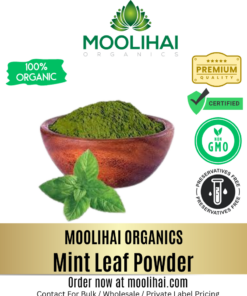
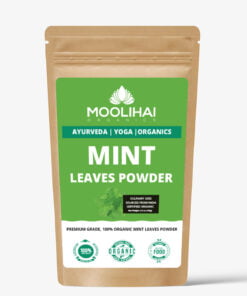

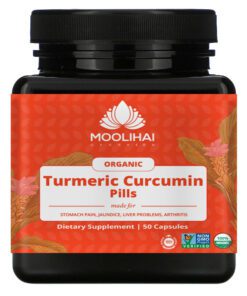
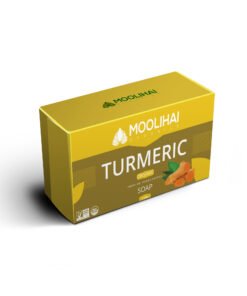
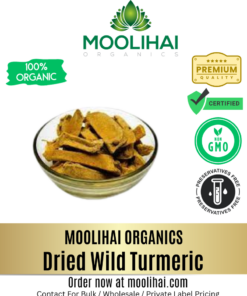

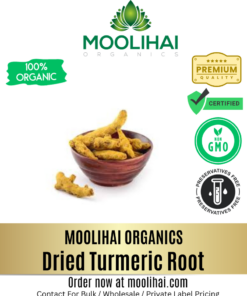

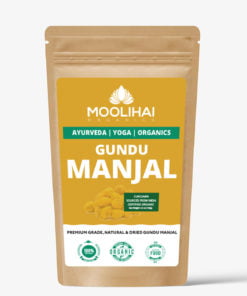
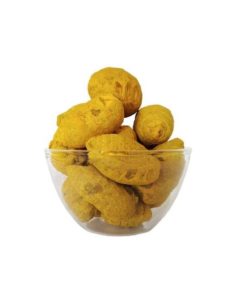
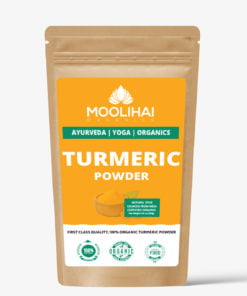

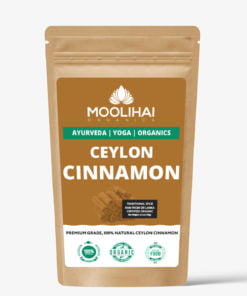

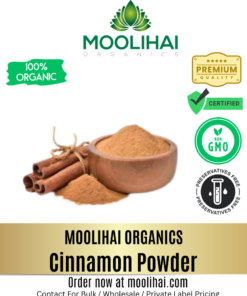

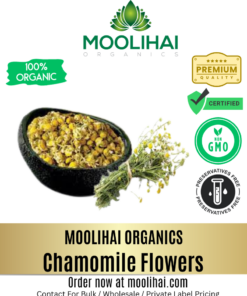

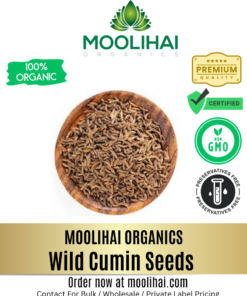

Ponnatharam Stone (Raw) | For Permanent Hair Removal
Vengai Paal | Black Bindi | Dhrishti Pottu | Vengai Pottu for Babies | 100% Natural
Dried Avaram Senna Flower / Cassia Senna Auriculata / Aavaram Poo / Tarwar / Amaltas Leaves / Senna Auriculata / Avaram Poo / Sanay / Alexandrina / Tanner’s Cassia flower
Natural Dried Moringa Flower – Moringa Oleifera – Drumstick Tree Flower – Murungai Poo – Munagaku Flower
Akasa Garudan Kilangu / Redfruit Creeper / Corallocarpus Epigaeus
Original Edible Camphor | Pacha Karpooram | Bhimseni Camphor
Saussurea Obvallata Seeds / Brahmakamal Seeds / Queen of the night / Sacred Saussurea Kon Kapfu / Brahma Kamalam / Nishagandha
Insulin Leaf Powder / Chamaecostus Cuspidatus / Costus Pictus / Spiral Ginger / Insulin Powder / Costus Igneus
Achu Pottu for Babies | Bindi Mould Set | Baby Seratta – 1 Set
Kaunch Beej Powder |Poonaikali | Velvet Bean Powder | Mucuna Pruriens | Kapikacchu | Natural Nervine Tonic & Muscle Builder
Aalam Pazham / Banyan Fruit Powder / Ficus Benghalensis / Marri Palu / Bargad / Dodda Alada Mara / Peraal / Vat Vriksha Powder
Traditional Vasambu Valayal for Babies | Calamus Bracelet | 100 % Pure & Natural